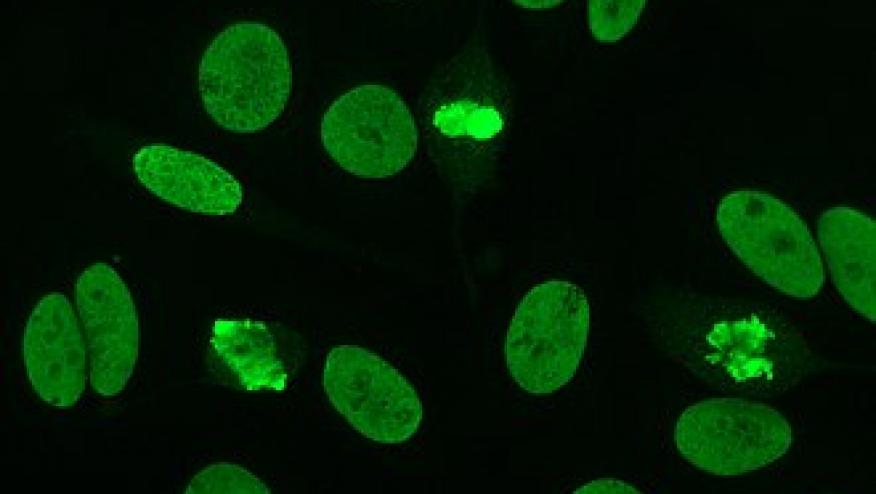Insights into Antinuclear Antibodies in Systemic Lupus Erythematosus Save

Pisetsky and Lipsky have reviewed the evolving literature on the utility of antinuclear antibodies (ANA). ANAs generated as part of an autoimmune disorder may form immune complexes that mediate pathogenesis by tissue deposition or cytokine induction.
ANAs are directed at DNA or associated nucleosome proteins, protein components of complexes of RNA and RNA-binding proteins (RBPs). Levels of anti-DNA antibodies can fluctuate widely, unlike the more stable anti-RBP antibodies.
Repeat testing of anti-DNA antibody levels can reflect disease activity, but a single anti-RBP antibody determination is thought to suffice for clinical purposes.
Experience from clinical trials suggest that patients who are ANA negative might not respond to certain agents; thus trials now screen for ANA and anti-DNA antibodies to identify and include patients with so-called ‘active, autoantibody-positive SLE’.
Evidence suggests that ANA responses can decrease over time because of the natural history of disease or the effects of therapy. Together, these findings suggest that, during established disease, more regular serological testing could illuminate changes relevant to pathogenesis and disease status.
Takeaways points:
- Antinuclear antibodies (ANAs) bind DNA, RNA and complexes of nucleic acids and protein.
- ANAs, anti-DNA and anti-Sm antibodies are part of the classification criteria for SLE.
- Anti-DNA antibodies and antibodies that recognize RNA-binding proteins show distinct patterns of expression that relate to their origin from different B cell populations.
- ANAs can mediate events in the pathogenesis of SLE as either free antibodies or as immune complexes.
- Amounts of ANAs in patients with SLE can change over time as a result of the natural history of the disease or the effects of immunosuppressive agents.
- Rescreening of ANA levels after disease onset could provide important information about disease mechanisms and disease status.










If you are a health practitioner, you may Login/Register to comment.
Due to the nature of these comment forums, only health practitioners are allowed to comment at this time.